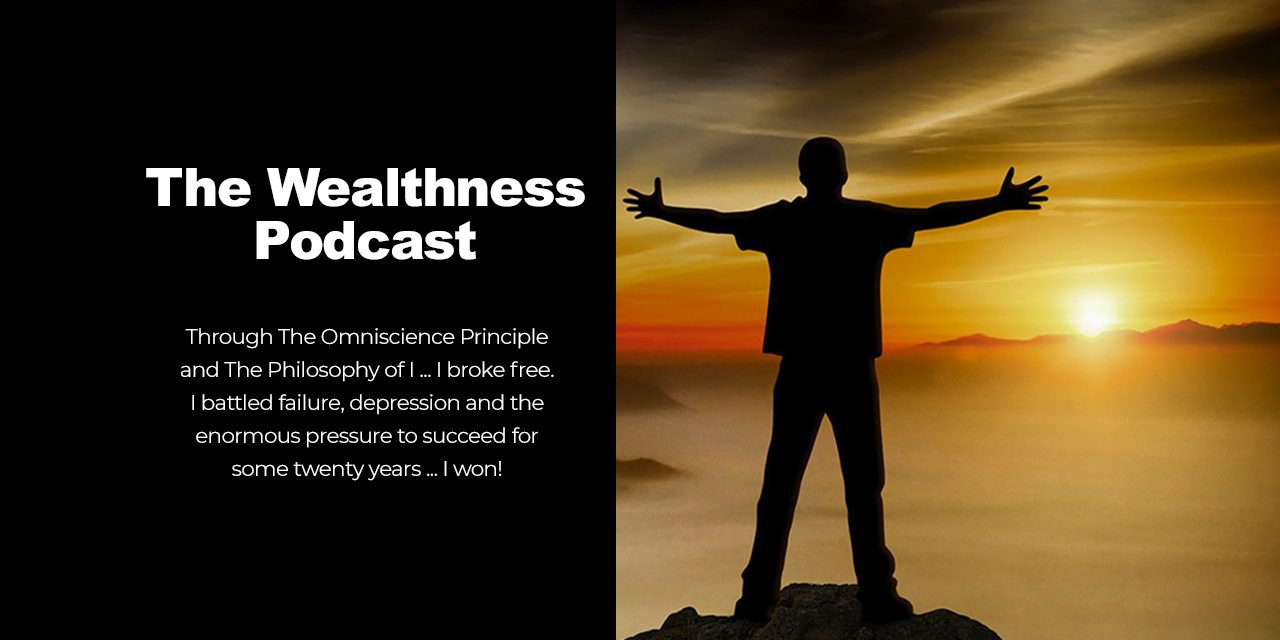Stress is an unavoidable part of modern life.
From work pressures to relationship challenges to global events, stressors bombard us daily. While we often view stress as entirely negative, emerging research suggests that our mindset about stress may be just as important as the stress itself when it comes to our health and wellbeing.
This revelation challenges our conventional wisdom about stress management. For decades, the prevailing advice has been to reduce or eliminate stress wherever possible. But what if we’ve been looking at stress all wrong? What if, instead of seeing stress as our enemy, we could harness its power to fuel our growth and resilience?
Recent studies in psychology and neuroscience are painting a more nuanced picture of stress. They suggest that how we perceive and respond to stress can significantly impact its effects on our bodies and minds. In other words, stress itself isn’t inherently harmful – it’s our relationship with stress that determines whether it will be detrimental or potentially beneficial.
Consider this: when you’re facing a challenging situation, your body’s stress response kicks in. Your heart rate increases, your breathing quickens, and your muscles tense. Traditionally, we’ve interpreted these physiological changes as negative – signs that our body is under attack. But what if we reframed this response as our body preparing us to meet the challenge head-on?
This shift in perspective isn’t just feel-good psychology – it has real, measurable effects on our health. Research has shown that people who view stress as enhancing rather than debilitating experience better health outcomes, improved performance, and greater life satisfaction.
Take, for example, the common experience of pre-performance jitters. Many of us have felt that flutter of nerves before a big presentation or important event. If we interpret those sensations as anxiety – as a sign that we’re not up to the task – we’re more likely to underperform. But if we reframe those same physical sensations as excitement – as our body ramping up to help us rise to the occasion – we’re more likely to excel.
This doesn’t mean we should seek out stress or ignore its potential negative impacts. Chronic, unrelenting stress can indeed take a toll on our physical and mental health. But for the everyday stressors we all face, our mindset can be a powerful tool.
So how can we cultivate a more positive relationship with stress?
It starts with awareness. The next time you feel stress creeping in, pause and notice your body’s response. Instead of immediately trying to suppress these sensations, acknowledge them as your body’s way of rising to the challenge.
Then, try reframing the situation. Ask yourself: “How is this stress preparing me to handle this situation? What can I learn from this experience?” This simple shift in perspective can transform stress from a burden into a resource.
It’s also crucial to remember that stress often arises from things we care about. If we’re stressed about work, it’s because our job matters to us. If we’re stressed about a relationship, it’s because that person is important in our lives. Recognizing the underlying values and priorities that give rise to our stress can help us appreciate it as a reflection of what matters most to us.
Of course, changing our relationship with stress is easier said than done. It requires practice and patience. But the potential benefits – improved health, better performance, and greater resilience – make it a worthwhile endeavor.
As we navigate the complexities of modern life, perhaps it’s time to rethink our approach to stress. Instead of waging an endless war against it, we might find more success in learning to work with our stress, harnessing its energy to fuel our growth and achievement. After all, a life without stress would be a life without challenge, growth, or meaningful engagement with the world around us.
In embracing stress as a natural and potentially beneficial part of life, we open ourselves up to new possibilities. We become more adaptable, more resilient, and ultimately, more capable of thriving in an ever-changing world. So the next time stress comes knocking, try greeting it not as an unwelcome intruder, but as a challenging yet potentially rewarding companion on your journey through life.
The Traditional View of Stress

Traditionally, stress has been seen as universally harmful. The “fight-or-flight” response triggered by stressful situations floods our bodies with hormones like cortisol and adrenaline. While this response can be adaptive in the short-term, chronic activation of the stress response has been linked to a host of negative health outcomes, including:
- Cardiovascular disease
- Weakened immune function
- Digestive issues
- Depression and anxiety
- Cognitive decline
- Premature aging
Given these potential consequences, the prevailing wisdom has been that we should strive to reduce or eliminate stress whenever possible. This view has shaped much of our approach to stress management over the past few decades.
However, recent research is challenging this one-dimensional view of stress. While chronic, unmanaged stress can indeed be harmful, a growing body of evidence suggests that some degree of stress can actually be beneficial when approached with the right mindset. The key lies in how we perceive and respond to stress. When we view stress as a threat, something to be avoided at all costs, we’re more likely to experience negative outcomes. But when we see stress as a challenge, or even as a potential opportunity for growth, we can harness its energy in positive ways.
Consider the physiological changes that occur during the stress response. Your heart rate increases, your breathing quickens, and you may feel a surge of energy. Traditionally, we’ve interpreted these changes as signs that our body is under attack. But what if we reframed them as our body preparing us to meet a challenge?
This shift in perspective isn’t just psychological sleight of hand – it has real, measurable effects on our bodies. Studies have shown that people who view stress as enhancing rather than debilitating experience different physiological responses. Their blood vessels tend to stay relaxed, mimicking what happens in moments of joy and courage, rather than constricting as they do in a threat response.
The stress response triggers the release of hormones like oxytocin, often called the “cuddle hormone.” Oxytocin helps protect the cardiovascular system from the effects of stress, and it also promotes social connection. This suggests that our stress response is designed not just to prepare us for “fight or flight,” but also to encourage us to seek support from others – a “tend and befriend” response.
This new understanding of stress doesn’t mean we should seek out stressful situations or ignore the potential negative impacts of chronic stress. Rather, it suggests that our relationship with stress is more complex than we once thought. By changing our mindset about stress, we can potentially transform its effects on our bodies and minds.
So how can we cultivate a more positive relationship with stress? Here are a few strategies:
- Recognize stress as a sign of engagement: If you’re feeling stressed, it often means you’re involved in something you care about. Acknowledge the importance of what you’re doing.
- Reframe physical symptoms: Instead of seeing a racing heart as a sign of anxiety, view it as your body preparing you to meet a challenge.
- Use stress as a cue for self-care: Let stress remind you to engage in healthy behaviors like exercise, meditation, or connecting with loved ones.
- Focus on your values: Remind yourself why the stressful situation matters to you. Connecting to your values can help you find meaning in challenging times.
- Seek support: Remember that the stress response encourages social connection. Reach out to others when you’re feeling stressed.
By adopting these strategies, we can begin to see stress not as an enemy to be vanquished, but as a potential ally in our personal growth and development. This doesn’t mean ignoring the very real negative impacts that chronic, unmanaged stress can have. Rather, it’s about developing a more nuanced, balanced approach to stress – one that recognizes both its potential dangers and its possible benefits.
A New Perspective on Stress

Building on the research presented by Kelly McGonigal and others, a growing body of evidence suggests that our relationship with stress can be transformed through mindset interventions. This shift in perspective doesn’t just change how we feel about stress; it can actually alter our physiological responses and long-term health outcomes.
One particularly intriguing study, conducted by researchers at Harvard University, demonstrated the power of reframing stress. Participants were asked to prepare a speech that would be judged by a panel. Before the task, half the group was instructed to reinterpret their anxiety as excitement. This simple reframing led to markedly improved performance compared to those who were told to try to calm down.
The implications of this research extend far beyond public speaking scenarios. In everyday life, we encounter numerous stressful situations – from work deadlines to personal conflicts. By adopting a stress-is-enhancing mindset, we may be able to harness the energy of our stress response to improve our focus, motivation, and overall performance.
This shift in perspective can have profound effects on our social behavior. When we view stress as a challenge to be met rather than a threat to be avoided, we’re more likely to reach out to others for support. This tendency towards social connection is not only psychologically beneficial but also triggers the release of oxytocin, a hormone that has protective effects on the cardiovascular system.
It’s important to note that adopting a stress-is-enhancing mindset doesn’t mean ignoring the potential negative impacts of chronic, unmanaged stress. Rather, it’s about developing a more nuanced, balanced approach to stress – one that recognizes both its potential dangers and its possible benefits.
Practical applications of this research are already emerging in various fields. Some progressive companies are incorporating stress mindset training into their employee wellness programs. Educational institutions are exploring ways to help students reframe academic stress as a growth opportunity rather than a threat to their well-being.
The Potential Benefits of Stress

Proponents of this new view argue that stress itself is neither inherently good nor bad. Rather, stress is simply the body’s way of responding to demands and challenges. When viewed in this light, the stress response can be seen as the body marshaling its resources to rise to a challenge. Some potential benefits of stress include:
- Improved focus and cognitive performance
- Increased motivation
- Enhanced immune function (in the short-term)
- Greater resilience and personal growth
The key is learning to harness stress as a positive force rather than being overwhelmed by it. By reframing stressful situations as challenges to be overcome, we can potentially tap into these benefits.
This perspective aligns with the concept of “eustress,” or positive stress, which was first introduced by endocrinologist Hans Selye. Eustress is the type of stress we feel when we’re excited or facing a manageable challenge. It’s characterized by feelings of excitement, motivation, and focus, rather than anxiety or overwhelm.
Research has shown that this type of stress can actually enhance cognitive function. A study published in the journal Psychoneuroendocrinology found that acute stress can improve working memory performance by increasing the release of norepinephrine in the brain. This neurotransmitter is associated with alertness and attention, suggesting that moderate levels of stress can actually help us focus and perform better on cognitive tasks.
The stress response triggers the release of hormones like cortisol and adrenaline, which in the short term can boost energy, increase motivation, and sharpen focus. This “fight or flight” response evolved to help us deal with immediate threats, but in our modern world, it can be harnessed to help us meet deadlines, give presentations, or tackle challenging projects.
The immune-boosting effects of short-term stress are another intriguing area of research. Studies have shown that acute stress can actually enhance the body’s immune response, potentially helping to fight off infections and heal wounds more quickly. However, it’s important to note that these benefits are typically seen with short-term stress; chronic stress tends to suppress immune function.
Perhaps one of the most significant potential benefits of stress is its role in fostering resilience and personal growth. Psychologists have long recognized that overcoming challenges can lead to increased confidence and improved coping skills. This concept, known as stress inoculation, suggests that exposure to moderate levels of stress can help us build resilience and better handle future stressors.
However, it’s crucial to emphasize that these potential benefits are typically associated with moderate, manageable levels of stress. Chronic or overwhelming stress is still associated with numerous negative health outcomes. The goal is not to seek out stress, but rather to learn how to approach inevitable stressors in a way that allows us to harness their potential benefits while mitigating their harmful effects.
Developing this more nuanced view of stress requires a shift in mindset and the development of effective coping strategies. Techniques like mindfulness meditation, regular exercise, and cognitive reframing can help individuals better manage their stress response and potentially tap into these benefits.
Mindset Interventions

Several studies have explored whether brief interventions to change people’s mindsets about stress can lead to meaningful outcomes. One notable study followed students at a community college over the course of an academic year. At the beginning of the year, some students were given a presentation about the potential benefits of stress and taught to view their stress response as their body preparing them to meet challenges. Compared to a control group, the students who received this “stress mindset intervention” reported less anxiety and depression and even showed improved academic performance.
Other research has found that teaching people to view stress as enhancing rather than debilitating led to improved performance on tests and public speaking tasks. For instance, participants who reframed their stress response as a helpful tool rather than a hindrance performed better in high-pressure situations. These studies suggest that even short, simple interventions to shift how we think about stress could have significant impacts.
The effectiveness of these mindset interventions appears to be rooted in several key mechanisms. By reframing stress as potentially beneficial, individuals can alter their physiological and psychological responses to stressors. This cognitive reappraisal allows for greater engagement with challenges, fostering resilience and promoting a proactive approach to problem-solving.
Moreover, these interventions can lead to reduced perceived distress. When individuals change their mindset about stress, they often experience lower levels of anxiety in high-stress situations. This shift not only enhances performance but also contributes to overall well-being.
The implications of these findings extend beyond academic settings. Educational institutions could implement brief mindset training programs to improve student well-being and academic outcomes. Similarly, workplaces might benefit from incorporating stress mindset interventions into their employee wellness programs, helping staff navigate pressures more effectively.
In essence, mindset interventions offer a promising avenue for harnessing the potential benefits of stress. By changing perceptions of stress from a threat to a challenge, these interventions can lead to meaningful improvements in performance, well-being, and resilience. As we continue to explore the intricate relationship between stress and mindset, it becomes increasingly clear that our beliefs about stress can shape our experiences in profound ways.
The Tend-and-Befriend Response

Building on the concept of the tend-and-befriend response, recent research has shed more light on the intricate relationship between oxytocin, stress, and social behavior. This deeper understanding enhances our perspective on how stress can potentially foster positive outcomes through social connection.
Oxytocin plays a crucial role in modulating the stress response and promoting social bonding. Studies have shown that oxytocin is released not only during positive social interactions but also in response to various stressors. This dual action of oxytocin suggests a complex interplay between stress and social behavior.
The tend-and-befriend response, primarily observed in women but also present in men to some degree, involves seeking and providing social support during times of stress. This response is closely tied to oxytocin release. When individuals engage in supportive social interactions during stressful periods, oxytocin levels increase, which in turn can help buffer the negative effects of stress.
Interestingly, oxytocin’s impact on stress is multifaceted. While it generally promotes stress reduction and social bonding, its effects can vary depending on the context and individual differences. For instance, in some cases, oxytocin may actually enhance the perception of social stress, particularly in individuals with a history of adverse social experiences. This nuanced action of oxytocin highlights the complexity of the stress response and the importance of considering individual and contextual factors.
The tend-and-befriend response offers several potential benefits:
- Stress Buffering: Social support, facilitated by oxytocin, can reduce the physiological impact of stress on the body.
- Enhanced Coping: Sharing experiences and receiving emotional support can improve psychological coping mechanisms.
- Collective Problem-Solving: Reaching out to others during stressful times can lead to collaborative solutions and shared resources.
- Long-term Resilience: Regular engagement in tend-and-befriend behaviors may build stronger social networks, contributing to overall resilience.
Recent studies have also explored how the tend-and-befriend response might be harnessed in therapeutic settings. For example, group therapy approaches that emphasize mutual support and connection have shown promise in treating stress-related disorders. Additionally, interventions that promote oxytocin release, such as certain forms of touch therapy or social bonding exercises, are being investigated as potential stress management tools.
Understanding the tend-and-befriend response provides a more holistic view of stress management. It suggests that effective stress coping isn’t just about reducing stressors or changing individual perceptions, but also about cultivating supportive social environments and relationships. This perspective aligns with the growing recognition of social determinants of health and the importance of community in overall well-being.
In conclusion, the tend-and-befriend response offers a compelling counterpoint to the traditional fight-or-flight model of stress. By recognizing and fostering this response, individuals and communities may be able to transform stressful experiences into opportunities for connection, growth, and resilience. This expanded understanding of stress responses provides new avenues for both personal stress management and broader public health interventions.
Limitations and Caveats
Methodological Considerations:
While the existing research on stress mindset is intriguing, many studies in this field have been conducted with relatively small sample sizes and over short durations. This limits our ability to draw definitive conclusions about the long-term efficacy of stress mindset interventions. Larger, longitudinal studies are needed to establish the sustained impact of these approaches on both psychological well-being and physical health outcomes.
Much of the research has been conducted in controlled laboratory settings or with specific populations (e.g., college students). The generalizability of these findings to diverse populations and real-world contexts remains a question that requires further investigation.
Individual Differences:
It’s important to recognize that the effectiveness of stress mindset interventions may vary significantly among individuals. Factors such as personality traits, past experiences with stress, and existing coping mechanisms can all influence how receptive a person is to reframing their stress response. Some individuals may find it easier to adopt a stress-is-enhancing mindset, while others might struggle with this cognitive shift.
Risk of Oversimplification:
There’s a potential danger in oversimplifying the complex nature of stress and its effects on health. While changing one’s mindset about stress can be beneficial, it should not be seen as a panacea for all stress-related issues. Chronic or severe stress can have very real, negative impacts on physical and mental health that cannot be entirely mitigated by mindset alone.
Ethical Considerations:
Promoting a positive view of stress could potentially lead to the minimization of genuine stress-related problems. There’s a fine line between encouraging resilience and inadvertently dismissing legitimate concerns about stressful conditions, particularly in workplace or educational settings. Care must be taken to ensure that stress mindset interventions don’t become a way to justify or perpetuate unhealthy or exploitative environments.
Contextual Factors:
As mentioned in the original text, it’s crucial to acknowledge that some sources of stress, such as systemic racism, poverty, or abuse, have profound negative impacts that extend far beyond individual perception. A stress mindset approach should never be used to downplay the very real harm caused by these systemic issues or to shift responsibility onto individuals for coping with unjust circumstances.
Integration with Other Approaches:
While stress mindset interventions show promise, they should be viewed as one tool among many in the broader context of stress management and mental health care. These approaches should be integrated with, rather than replace, other evidence-based strategies for addressing stress and mental health issues, including therapy, medication when necessary, and efforts to address root causes of stress.
Potential for Misapplication:
There’s a risk that the concept of stress mindset could be misappropriated or oversimplified in popular media or self-help contexts. This could lead to unrealistic expectations or a sense of failure if individuals are unable to simply “think their way” out of experiencing stress negatively.
Need for Tailored Interventions:
As research in this field progresses, it’s becoming clear that one-size-fits-all approaches may not be optimal. Future studies should focus on developing more nuanced, personalized interventions that take into account individual differences, cultural contexts, and specific types of stressors.
The stress mindset approach offers intriguing possibilities for enhancing our relationship with stress, it’s essential to approach this field with a balanced perspective.
Practical Applications: Harnessing the Power of Stress

Let’s face it – stress isn’t going anywhere. But what if we could turn this constant companion into an ally rather than an enemy? The emerging science of stress mindset suggests we might be able to do just that. Here’s how you can start reframing your relationship with stress:
- Embrace the Adrenaline Rush
Next time you feel your heart racing before a big presentation, don’t curse your nerves. Instead, think of it as your body’s way of saying, “Game on!” That surge of energy? It’s nature’s performance enhancer, helping you stay sharp and focused when it counts. - Turn Mountains into Molehills (or at least Manageable Hills)
When faced with a daunting task, resist the urge to catastrophize. Break it down into smaller, actionable steps. Each little victory will boost your confidence and remind you that you’re capable of tackling tough challenges. - Find Your “Why”
Stress often stems from things we care about deeply. Feeling overwhelmed by work? It might be because you’re passionate about your career. Anxious about a relationship? It’s likely because that person matters to you. Connecting your stress to your values can help you find meaning in difficult moments. - Build Your Stress-Busting Squad
Remember, you’re not in this alone. Reach out to friends, family, or colleagues when the going gets tough. Not only will you feel supported, but you’ll also be tapping into that tend-and-befriend response we talked about earlier. It’s like a biological cheat code for stress relief! - Be Your Own Cheerleader (Not Your Harshest Critic)
We’re often our own worst enemies when it comes to stress. Instead of berating yourself for feeling overwhelmed, try a little self-compassion. Treat yourself with the same kindness you’d offer a friend in a similar situation. - Rewrite Your Stress Story
Pay attention to the narrative you’re telling yourself about stress. Are you casting it as the villain in your life story? Try reframing it as a challenging but ultimately beneficial force – like a tough but fair coach pushing you to grow. - Embrace the Learning Curve
Every stressful situation is an opportunity to learn something new about yourself. What coping strategies work best for you? How resilient are you really? Approaching stress with curiosity can transform it from a burden into a growth opportunity.
Remember, this isn’t about pretending stress doesn’t exist or that it can’t have negative impacts. It’s about developing a more nuanced, balanced relationship with stress. By shifting our mindset, we can potentially tap into the hidden benefits of stress while buffering against some of its more harmful effects.
Will this approach solve all your problems? Of course not. There’s no magic wand for stress. But by changing how we think about and respond to stress, we might just be able to turn this unavoidable part of life into a tool for personal growth and resilience.
So the next time stress comes knocking, don’t just brace for impact. Take a deep breath, remember these strategies, and see if you can transform that stress into your secret weapon for success. After all, it’s not about eliminating stress from your life – it’s about learning to dance with it.










